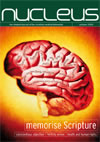Christians can sometimes be rather blasé about reading a passage of Scripture and then applying it loosely (and perhaps wrongly). Constant change in the meaning of words is only one of the difficulties plaguing modern translators of the Bible. Do you deploy the ancient word, or do you change it so that people can understand the original intention of the writer? Take the example of worship. Does Psalm 96:9, ‘Worship the Lord in the splendour of his holiness’ really mean that we gather and sing our hearts out to God? In the strictest sense, no, it doesn’t.
Vaughan Roberts calls us to recapture the real meaning of the word ‘worship’, which has been forgotten as it has been replaced by the notion of making music. In the introduction, he writes of Jesus referring to ‘true worshippers’ who are ‘the kind of worshippers the Father seeks’ (Jn 4:23). We need look no further than Romans 12:1 for a simple definition: ‘Therefore, I urge you, brothers, in view of God’s mercy, to offer your bodies as living sacrifices, holy and pleasing to God – this is your spiritual act of worship.’ He helps us to understand its true nature, by spending a whole chapter on explaining two verses: the key is that we do this by transforming our mind (v2). We’re warned of the dangers and mistakes of worshipping falsely, perhaps even without knowing it.
By addressing other common associations with the W-word; religion/habit and ceremony, the sacraments, the place of music, he satisfies the reader in building up a big-picture concept of the believer in worship of God. Finally, in understanding the Lord’s Supper, beneath all the packaging of symbolism at Sunday services, he shows us what worship meant to Jesus – following the will of the Father until death.
I’m enormously challenged by the book – not least from its content, but also from its implication. If worship is as all encompassing as is suggested, I should never feel content that ‘I’ve done my bit for God today’, which is how I often think – a rather unbiblical stance. Worshipping God with all our heart, mind, soul and strength is never complete. Just thinking through applications makes me a more determined servant for Christ.
Like the author’s other titles, it benefits from clear headings and simplicity; they serve as great reminders should you want to jog your memory in reading it for a second time. If the Nucleus editor’s recommendation doesn’t swing you (!), then it’s likely that a Christian friend, or your local bookshop may suggest it as well.
Reviewer:
Gavin Ling































